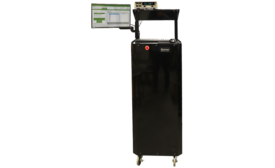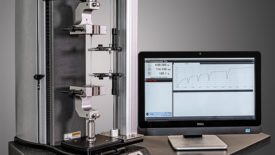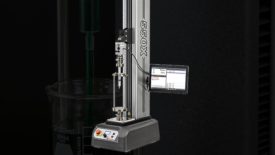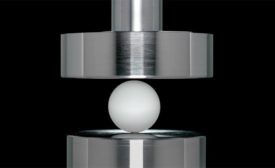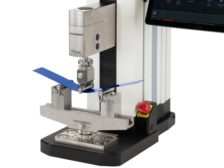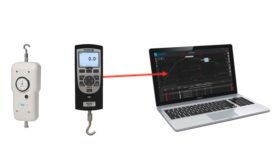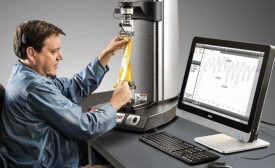Home » Keywords: » force testing
Items Tagged with 'force testing'
ARTICLES
Quality 101
Compression testing is a vital process in quality control, helping manufacturers evaluate the strength, durability, and stability of materials.
Read More
Test & Inspection
Determining if Force and/or Material Testing is Right for your Application
Your choice can be simplified by knowing what kind of information you need to collect.
March 9, 2023
NDT | Force Testing
Measuring Force Data in Extreme Conditions
Manufacturers want more data in the product development process to create better products, and they need solutions that can perform in any condition.
February 15, 2023
Quality 101
Force Testing Ensures Syringe QC During Design, Manufacture and Application
Uniaxial force testers have the advantage of performing both material tests and application demonstrations to ensure that quality products are made.
June 15, 2022
NDT | Compression Testing
Squeezing the Most Out of Compression Testing
The data derived from compression testers can be helpful throughout the life cycle of a product.
August 15, 2021
Test & Inspection
Navigating Supply Chain Challenges with Force Testing
Recent advancements in force measurement equipment allow quality professionals to better handle unpredictable testing demands.
May 5, 2021
Materials Testing
Force Testers Vs. Material Testers
Force testers and material testers have expanded into industries such as medical, plastic, and aerospace to assure that strict product performance and reliability standards are met.
April 8, 2021
Peel Applications
Lengthwise force testing for adhesives and interlocking materials.
February 8, 2021
Stay in the know with Quality’s comprehensive coverage of
the manufacturing and metrology industries.
eNewsletter | Website | eMagazine
JOIN TODAY!Copyright ©2025. All Rights Reserved BNP Media.
Design, CMS, Hosting & Web Development :: ePublishing

